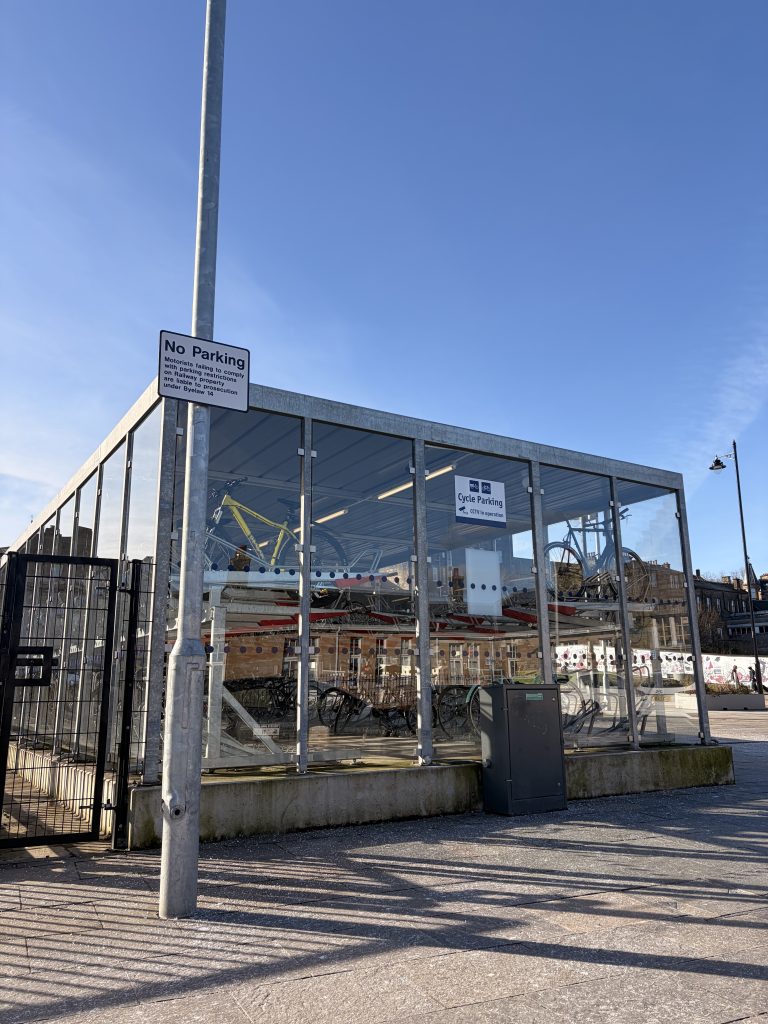British Transport Police: Decriminalising Bike Theft at Our Stations?

Written by Ryan
The British Transport Police (BTP) recently announced that it will no longer investigate bicycle thefts at train stations if a bike has been left unattended for more than two hours. According to BTP, this decision is intended to allow officers to focus on “crimes which cause the most harm.”
This policy is deeply troubling on multiple fronts. First, the idea that bike theft does not “cause harm” is misleading. For many commuters, a bike is not a hobby; it is a lifeline to work, school, and daily life. Losing it can mean lost income, missed appointments, and significant stress. To suggest that such theft is less worthy of investigation than other crimes is to ignore the real-world impact on everyday people that the theft of a bicycle can have.
I can speak from experience. When I worked a part-time job during university, I cycled from our student accommodation to the train station. Most of the time, I would take my bike on the train because of the fear of theft – but that meant hoping there was space on sometimes cramped peak-hour trains. Losing my bike while at work would have forced me to rely on expensive and unreliable bus services, often needing to catch multiple buses just to reach the train station. By cycling, I avoided these costs and constraints, freeing myself from added travel tickets and rigid bus timetables. A stolen bike, under the BTP’s new policy, would have left me stranded and significantly disadvantaged. Not to mention out of pocket!
Consider this: if a car were stolen from a train station car park, police would almost certainly investigate. Why, then, is a bike treated differently? For most people, whether using a bike or a car to access trains, leaving either for more than two hours is unavoidable – commuting to and from work often means leaving it for eight hours or more. Under this policy, nearly all bike thefts for rail passengers would fall outside the investigation window.
The BTP claims this approach allows them to allocate resources more effectively. But there is a better way to tackle limited resources than effectively decriminalising theft. Many bike shelters already have CCTV coverage; even a quick review could deter crime and identify thieves. Ignoring these cases entirely sends the opposite message: that bike theft is “low-risk” and tolerated. And if the if the evidence gathered by the CCTV will not be reviewed in many cases, then why bother installing any in the first place?
But this policy is not just bad for cyclists; it undermines broader transport goals. The government and local authorities are actively encouraging people to cycle, reduce car use, and embrace public transport. If commuters cannot trust their bikes to be safe at stations and return to them after a day at work, they will naturally revert to private car use and alternative modes of transport, putting more pressure on roads and the rail network. The BTP’s decision flies in the face of these efforts, discouraging sustainable commuting while seemingly tolerating criminal behaviour.
British Transport Police, local authorities, and ScotRail must rethink and challenge this policy. Every commuter’s bike represents freedom, independence, and a commitment to greener travel. To ignore that is short-sighted, counterproductive and sends the message that these crimes can be committed with relative impunity!
